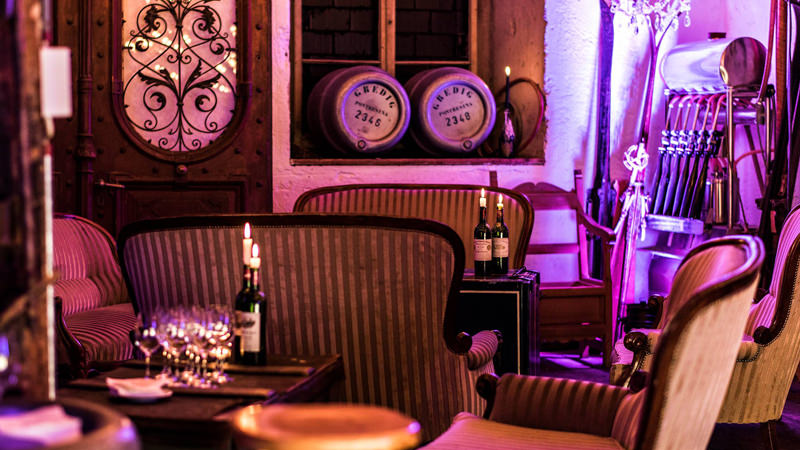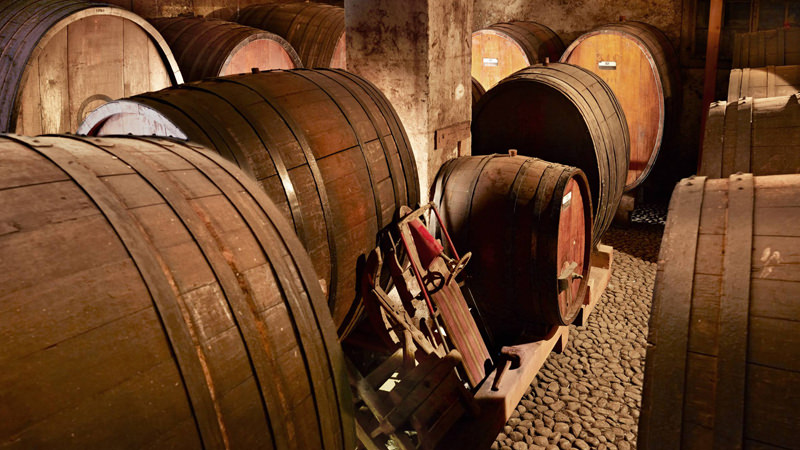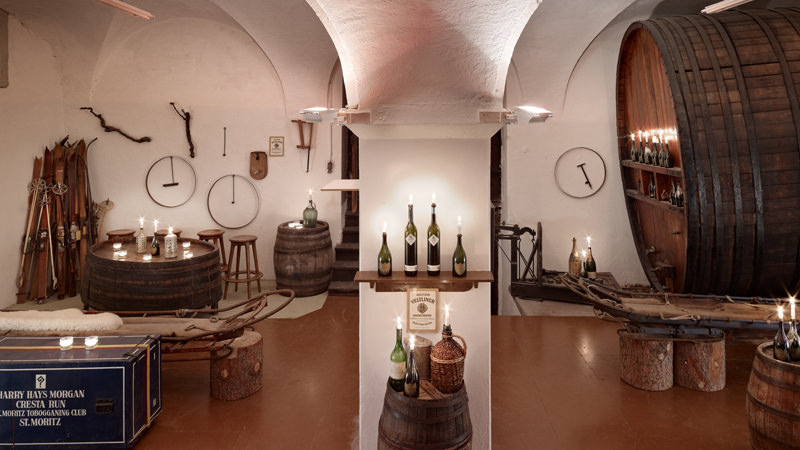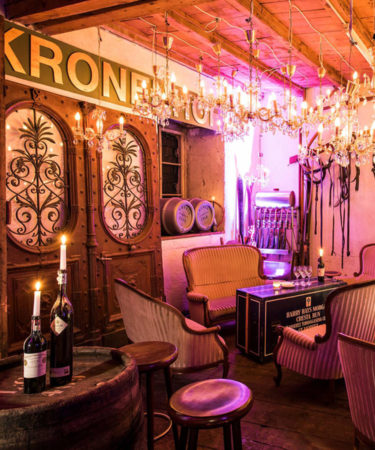When you pass through the harried restaurant kitchen of Switzerland’s Grand Hotel Kronenhof, the floor changes quickly. White, industrial tile suddenly morphs into small black cobblestones, and then you’re suddenly faced with a rickety descending staircase made of oak.
Follow it, and you’re in the wine cellar of the renowned Swiss hotel. This is no run-of-the-mill storehouse for fancy juice. This cellar is one of the only reasons that the “Krone,” Pontresina’s grand dame hotel, still exists today.

One of the best-preserved grand hotels of the 19th century, Grand Hotel Kronenhof was founded by Andreas Gredig in 1848 as the Rössli Guesthouse, a casual operation. His son, Lorenz, set up a wine cellar in the basement, bottling and selling his own wine, sourced from the Valtellina, across the Bernina Pass in Italy.
According to John Addington Symonds’ 1883 book, “Italian Byways,” it was common for wine merchants from the Graubünden, like Gredig, to purchase the whole crop from a vineyard each year. “Then, when the snow has fallen, their own horses with sleighs and trusted servants go across the passes to bring it home,” Symonds wrote. Most of Gredig’s wine was red, produced from Chiavennasca, the local name for Nebbiolo.
Needless to say, the process wasn’t easy; but it was lucrative for Gredig and his family. By 1898, the flourishing hotel had more than 350 rooms and drew guests from across Europe.
Then, World War I struck. Tourism halted as neutral Swiss soldiers, sent to protect the Swiss-Italian border from possible spillover from the area’s surrounding trench warfare, arrived in the idyllic Engadine Valley instead.
“They didn’t pay for hotel rooms, but they drank a lot of wine,” Katja Schneider, the hotel’s director of sales and marketing, says. “And they paid for the wine.”

Despite empty guest rooms, the hotel remained open by selling its wine throughout the war.
The Winter Olympics, held in 1928, once again brought visitors to the region, but the 1939 outbreak of World War II turned the region into a veritable Alpine fortress. Still, those in the valley — mostly Swiss soldiers and Allied soldiers interned in the region’s ski resorts — never stopped drinking wine. And, yet again, the Kronenhof’s small import business and well-stocked cellar came into play.
“After the wars, many hotels went bankrupt because they did not have the security of a second business and were unable to survive,” explained Schneider. “Many hotels just disappeared after the wars or were resold to other investors. The Gredig family owned this hotel for more than 150 years.”

Today, Kronenhof’s grand cellar serves as a secluded private event space within the hotel, complete with empty wine bottles from illustrious chateaux like Haut-Brion and Cheval Blanc serving as de facto candle holders. Old ski gear and historical mementos — like the hotel’s first sign — adorn the walls, but for the most part, the room remains as it was, with bottling equipment and wood fermentation barrels lining the walls.
If you close your eyes and think hard enough, you just might be able to hear the clink of a soldier’s wine glass as snow gently falls onto the valley outside.
